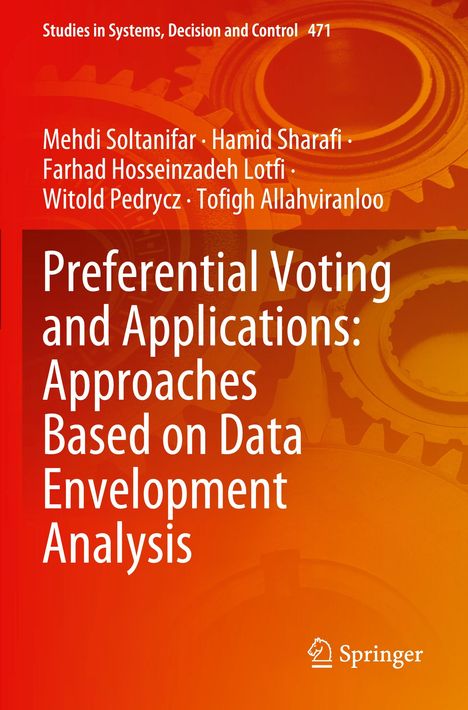Mehdi Soltanifar: Preferential Voting and Applications: Approaches Based on Data Envelopment Analysis, Kartoniert / Broschiert
Preferential Voting and Applications: Approaches Based on Data Envelopment Analysis
(soweit verfügbar beim Lieferanten)
- Verlag:
- Springer, 05/2024
- Einband:
- Kartoniert / Broschiert, Paperback
- Sprache:
- Englisch
- ISBN-13:
- 9783031304057
- Artikelnummer:
- 11875039
- Umfang:
- 196 Seiten
- Gewicht:
- 306 g
- Maße:
- 235 x 155 mm
- Stärke:
- 11 mm
- Erscheinungstermin:
- 21.5.2024
- Hinweis
-
Achtung: Artikel ist nicht in deutscher Sprache!
Weitere Ausgaben von Preferential Voting and Applications: Approaches Based on Data Envelopment Analysis |
Preis |
|---|
Klappentext
This book presents the theory and application of the models presented in this regard and establishes a meaningful relationship between data envelopment analysis and multi-attribute decision making. The issue of "choice" using the aggregation of voters' votes is one of the most important group decision-making issues that are always considered by decision makers in electoral systems. Voting is a method of group decision making in a democratic society that expresses the will of the majority. Voting is perhaps the simplest way to gather the opinions of experts, and this ease of application has made it a multi-attribute decision-making method in group decisions. Preferential voting is a type of voting that may refer to electoral systems or groups of the electoral system. In preferential voting, voters vote for multiple candidates, and how the candidates are arranged on the ballot is important. Researchers have made many efforts to provide models of voter aggregation, and one of the bestresults of these efforts is the aggregation of votes based on the policy of data envelopment analysis. Thus, in group decisions, the opinions of experts are obtained in a simple structure and consolidated in an interactive and logical structure, and the results can be a powerful tool for decision support. This book provides a complete set of voting models based on data envelopment analysis and expressing its various applications in industry and society. However, most decision-making methods do not use the opinions of experts or reduce the motivation of experts to participate in complex interactions and time, while voting methods do not have this shortcoming. This book is suitable for graduate students in the fields of industrial management, business management, industrial engineering, applied mathematics, and economics. It can also be a good source for researchers in decision science, decision support systems, data envelopment analysis, supply chain management, healthcare management, and others. The methods presented in this book can not only offer a comprehensive framework for solving the problems of these areas but also can inspire researchers to pursue new innovative hybrid methods.


